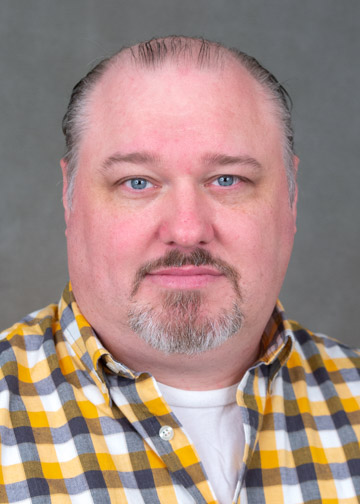Dr. Nicholas Quintyne
Assistant Professor224 Science Center
(716) 673-3821
View email
I am a cell biologist, with an interest in microtubule regulation during both interphase and mitosis.
B.S. Biology, Dickinson College, Carlisle PA 1991-1995
Ph.D. Biology, The Johns Hopkins University, Baltimore MD 1995-2002
Postdoctoral Fellow, The Johns Hopkins University, 2002
Postdoctoral Fellow, University of Pittsburgh, Pittsburgh PA 2002-2005
Assistant Professor of Biology, The Harriet L. Wilkes Honors College of Florida Atlantic University, Jupiter FL 2005-2013
Assistant Professor of Biology, State University of New York at Fredonia, 2013 - present
I teach classes that mostly fall into the molecular arena. I enjoy the process of discovery as diverse cellular events are tied together and we increase our understanding of not only how something works, but why. I teach:
BIOL 110 - Human Biology (Fredonia Foundations Course)
BIOL 133 - Introduction to Cell and Molecular Biology
BIOL 134 - Introduction to Cell and Molecular Biology Lab
BIOL 380 - Cell Biology
BIOL 381 - Cell Biology Laboratory
BIOL 450 - Cancer Biology
BIOL 450 - Cell Signaling (sometimes offered as a Capstone course)
I am interested in two major processes concerning microtubules: How they are anchored at the microtubule organizing center during interphase, and how they are organized and regulated during mitosis.
In interphase, microtubules are organized at the microtubule organizing center (MTOC), and retained there by the microtubule anchoring complex. The multisubunit protein complex dynactin is a key component of the anchoring complex, but it also performs many other tasks around the cell. I am interested in determining how dynactin functions in the anchoring complex, and what changes occur to the complex when a particular dynactin molecule is recruited for this task.
I am also interested in defects that occur during mitosis. Errors in chromosomal segregation lead to genomic instability, which is a hallmark of tumor progression. I am interested in understanding how these defects arise through protein misregulation, and what defense mechanisms exist within the cell to combat these defects.
In my lab, we use fluorescent microscopy and other molecular and biochemical techniques to examine these processes in both fixed and live cells.

Dr. Nicholas Quintyne
Assistant Professor